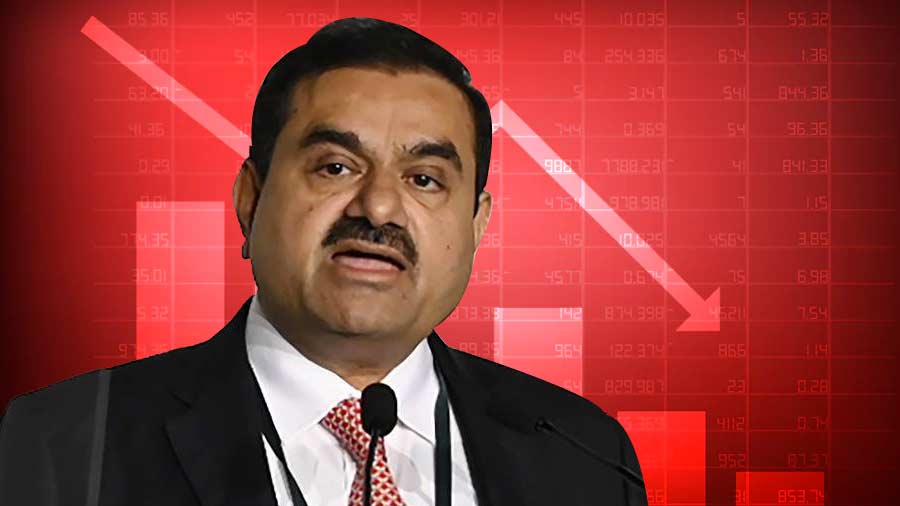Former US treasury secretary and former Harvard University president Larry Summers has likened the Adani controversy in India to a “possible Enron moment” in the US without naming the Indian group, adding that its fallout would be on the minds of the G20 finance ministers when they meet in Bangalore later this week.
Responding to questions on Bloomberg’s Wall Street Week last Friday, Summers brought up the Adani issue without naming the group. However, Bloomberg kept running the conglomerate’s logo from its different properties through the clip.
Asked what he was looking for in the G20 meetings, Summers said: “We haven’t talked about it on the show but there’s been a kind of possible Enron moment in India....”
Summers added: “And I imagine with India emerging as the world’s largest country and the meeting taking place in India, there’s going to be a lot of curiosity from all present about how that’s going to play through and what — if any — larger systemic implications that’s going to have for India.”
The Enron scandal erupted when the energy and commodities giant was forced into bankruptcy as a result of one of the biggest accounting frauds in the US. For a number of years, the top officials at Enron had been hiding the true state of affairs by using a dubious mark-to-market accounting mechanism that allowed it to show illusory profits by recognising unrealised future gains on some derivative contracts in the current income statement.
When matters started to spiral out of control, Enron’s financial executives set up a number of special purpose entities (SPEs) where a mountain of troubled assets was housed so that the company’s books stayed squeaky clean. It eventually turned into the biggest accounting scandal in the US in the break-up of Arthur Andersen, which had served as an auditor as well as a consultant to Enron.
It also led to the imprisonment of several Enron executives. The scandal resulted in a wave of new regulations and legislation designed to increase the accuracy of financial reporting for publicly traded companies. The most important of those measures, the Sarbanes-Oxley Act (2002), imposed harsh penalties on companies and executives responsible for destroying, altering, or fabricating financial records.
The Hindenburg Research report has raised questions about financial probity at the Adani group. The Adanis have been accused of funnelling money from entities housed in global tax havens whose beneficial ownership was concealed behind opaque corporate structures.
The difference is that the Adanis have been accused of manipulating stock prices of its listed entities in such a manner that it propelled Gautam Adani from relative obscurity to the very top of various global rich lists. After the Hindenburg report appeared on January 24, the paper wealth of the Adani group shrank — leaving regulators and shareholders groping for answers with no clear idea of how much more pain looms over the horizon.











